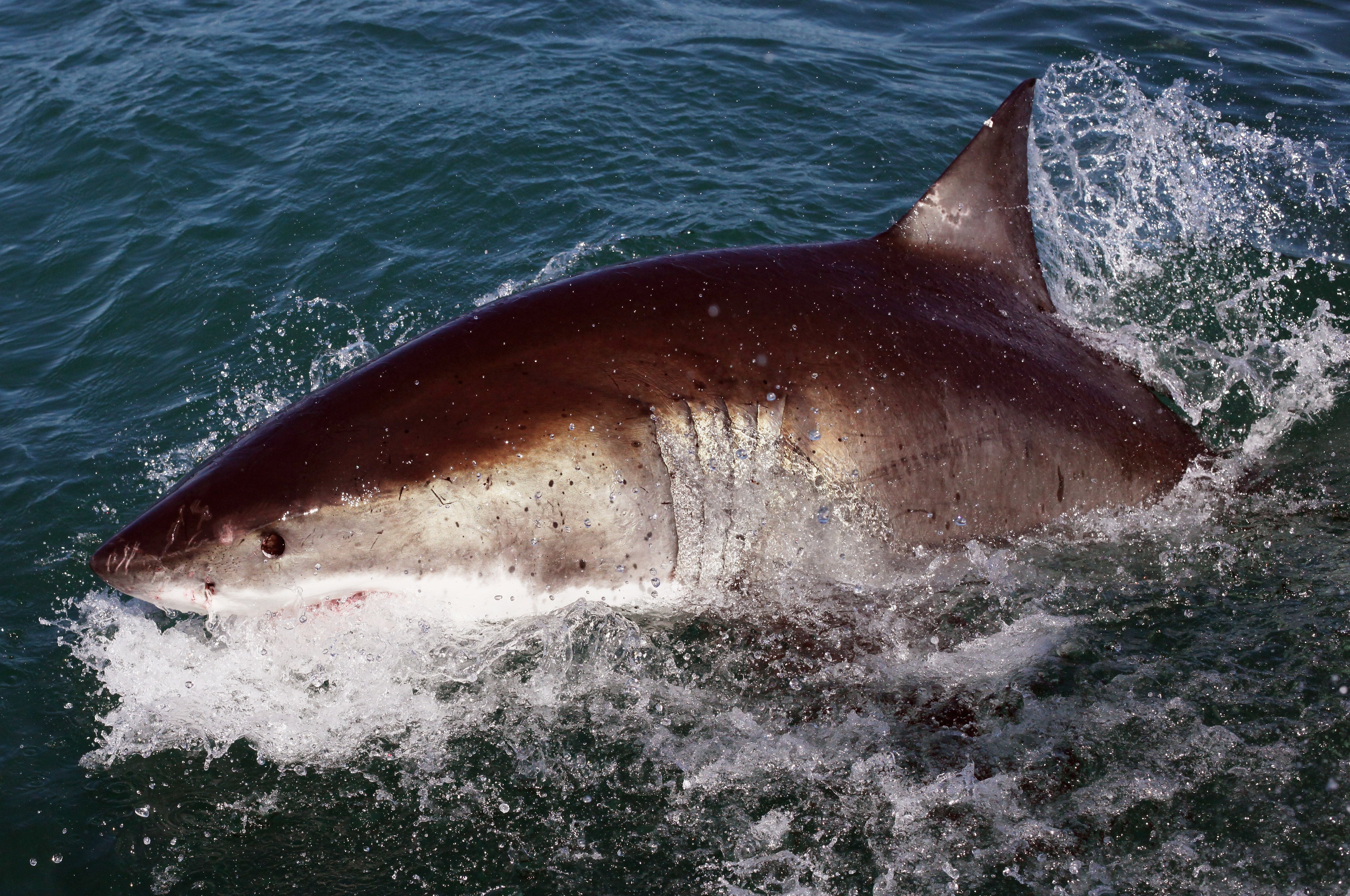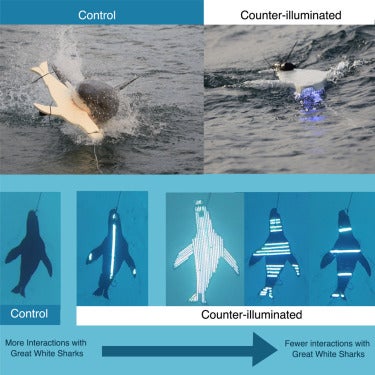A new light system developed by Australian scientists to mimic ocean camouflage may deter Great White Shark attacks, a new study says.
Marine predators like sharks locate prey by looking for silhouettes illuminated by sunlight from above.
Such silhouettes from surfers when seen from below may confuse hunters like the Great White Shark, which may mistake them for seals or other prey.
Hiding from the Great Whites, which are responsible for most human fatalities from shark bites, is complicated as the downwelling light is generally much brighter than the upwelling light.
So even if the ventral surface of a prey species is white due to countershading, it will appear as a dark silhouette when viewed from below, making them easy prey to the Great Whites.

A number of species counter shark attacks by emitting light from their undersides as a camouflage strategy.
Taking inspiration from this, Australian scientists tested a similar strategy by fitting LED lights on seal decoys.
They arranged horizontal strips of LED lights onto the decoys and towed them behind a boat for several hours in Mossel Bay, South Africa, which has one of the world’s highest sightings of the Great Whites.
The scientists assessed if different brightness levels of the lights would impact predator attacks. They found that the sharks were much more likely to interact with seal decoys that did not have LED lights attached.
“In this context, counterillumination works through disruptive camouflage rather than background matching,” the researchers say.
They also found that as the lights were made brighter, the sharks were less likely to interact with the fake seals.

Since the Great Whites generally have poor visual acuity and lack colour vision, this strategy can deter their attacks on humans, scientists say.
“Here, we take inspiration from nature to show that counterillumination can prevent Great White sharks from attacking artificial seal decoys,” they write in the study, published in the journal Current Biology.
“Our results reveal the importance of a dark silhouette against a lighter background in predatory behaviour in Great White sharks and that altering the silhouette may form the basis of new non-invasive shark deterrent technology to protect human life.”
In ongoing tests, the scientists are investigating whether a surfboard fitted with LED lights at the bottom can similarly deter shark attacks.







